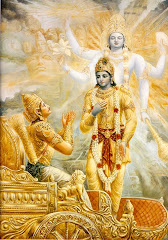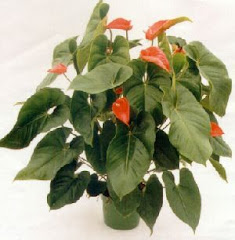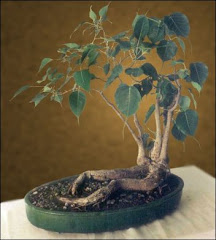
I just realised that I have completed a month as a blogger. Exactly a month, that is. And I have 10 posts to show for my efforts. Quite satisfactory I would say. What?
To round off my first month as a blogger, I turn to poetry. I decided to post some of my favourite poems here. Actually a dozen of them (but not in their order of preference as such). A poem can paint a thousand images in our mind's eye. These poems take me back to my schooldays.....a kaleidoscope of memories.........
1) The first, by Robert Frost. It's called 'Stopping By Woods on a Snowy Evening,' and goes like this:
Whose woods these are I think I know
His house is in the village though;
He will not see me stopping here
To watch his woods fill up with snow.
His house is in the village though;
He will not see me stopping here
To watch his woods fill up with snow.
My little horse must think it queer
To stop without a farmhouse near
Between the woods and frozen lake
The darkest evening of the year.
To stop without a farmhouse near
Between the woods and frozen lake
The darkest evening of the year.
He gives his harness bells a shake
To ask if there is some mistake.
The only other sound's the sweep
Of easy wind and downy flake.
To ask if there is some mistake.
The only other sound's the sweep
Of easy wind and downy flake.
The woods are lovely, dark and deep.
But I have promises to keep,
And miles to go before I sleep.
And miles to go before I sleep.
But I have promises to keep,
And miles to go before I sleep.
And miles to go before I sleep.
Two roads diverged in a yellow wood,
And sorry I could not travel both
And be one traveller, long I stood
And looked down one as far as I could
To where it bent in the undergrowth;
And sorry I could not travel both
And be one traveller, long I stood
And looked down one as far as I could
To where it bent in the undergrowth;
Then took the other, as just as fair,
And having perhaps the better claim,
Because it was grassy and wanted wear;
Though as for that the passing there
Had worn them really about the same,
And having perhaps the better claim,
Because it was grassy and wanted wear;
Though as for that the passing there
Had worn them really about the same,
And both that morning equally lay
In leaves no step had trodden black.
Oh, I kept the first for another day!
Yet knowing how way leads on to way,
I doubted if I should ever come back.
In leaves no step had trodden black.
Oh, I kept the first for another day!
Yet knowing how way leads on to way,
I doubted if I should ever come back.
I shall be telling this with a sigh
Somewhere ages and ages hence:
Two roads diverged in a wood, and I—
I took the one less traveled by,
And that has made all the difference.
Somewhere ages and ages hence:
Two roads diverged in a wood, and I—
I took the one less traveled by,
And that has made all the difference.
3) The third - 'Daffodils' a poem by William Wordsworth:
I wandered lonely as a cloud
That floats on high o'er vales and hills,
When all at once I saw a crowd,
A host, of golden daffodils;
Beside the lake, beneath the trees,
Fluttering and dancing in the breeze.
That floats on high o'er vales and hills,
When all at once I saw a crowd,
A host, of golden daffodils;
Beside the lake, beneath the trees,
Fluttering and dancing in the breeze.
Continuous as the stars that shine
And twinkle on the milky way,
They stretched in never-ending line
Along the margin of a bay:
Ten thousand saw I at a glance,
Tossing their heads in sprightly dance.
The waves beside them danced, but they
Out-did the sparkling leaves in glee;
A poet could not be but gay,
In such a jocund company!
I gazed—and gazed—but little thought
What wealth the show to me had brought:
Out-did the sparkling leaves in glee;
A poet could not be but gay,
In such a jocund company!
I gazed—and gazed—but little thought
What wealth the show to me had brought:
For oft, when on my couch I lie
In vacant or in pensive mood,
They flash upon that inward eye
Which is the bliss of solitude;
And then my heart with pleasure fills,
And dances with the daffodils.
In vacant or in pensive mood,
They flash upon that inward eye
Which is the bliss of solitude;
And then my heart with pleasure fills,
And dances with the daffodils.
4) The fourth one is 'The Solitary Reaper' by William Wordsworth:
Behold her, single in the field,
Yon solitary Highland Lass!
Reaping and singing by herself;
Stop here, or gently pass!
Alone she cuts and binds the grain,
And sings a melancholy strain;
O listen! for the Vale profound
Is overflowing with the sound.
Yon solitary Highland Lass!
Reaping and singing by herself;
Stop here, or gently pass!
Alone she cuts and binds the grain,
And sings a melancholy strain;
O listen! for the Vale profound
Is overflowing with the sound.
No Nightingale did ever chaunt
More welcome notes to weary bands
Of travellers in some shady haunt,
Among Arabian sands:
A voice so thrilling ne'er was heard
In spring-time from the Cuckoo-bird,
Breaking the silence of the seas
Among the farthest Hebrides.
More welcome notes to weary bands
Of travellers in some shady haunt,
Among Arabian sands:
A voice so thrilling ne'er was heard
In spring-time from the Cuckoo-bird,
Breaking the silence of the seas
Among the farthest Hebrides.
Will no one tell me what she sings?--
Perhaps the plaintive numbers flow
For old, unhappy, far-off things,
And battles long ago:
Or is it some more humble lay,
Familiar matter of to-day?
Some natural sorrow, loss, or pain,
That has been, and may be again?
Perhaps the plaintive numbers flow
For old, unhappy, far-off things,
And battles long ago:
Or is it some more humble lay,
Familiar matter of to-day?
Some natural sorrow, loss, or pain,
That has been, and may be again?
Whate'er the theme, the Maiden sang
As if her song could have no ending;
I saw her singing at her work,
And o'er the sickle bending;--
I listened, motionless and still;
And, as I mounted up the hill,
The music in my heart I bore,
Long after it was heard no more.
As if her song could have no ending;
I saw her singing at her work,
And o'er the sickle bending;--
I listened, motionless and still;
And, as I mounted up the hill,
The music in my heart I bore,
Long after it was heard no more.
5) The fifth, by Alfred Lord Tennyson. It's called 'Home They Brought Her Warrior Dead':
Home they brought her warrior dead:
She nor swooned, nor uttered cry:
All her maidens, watching, said,
'She must weep or she will die.'
She nor swooned, nor uttered cry:
All her maidens, watching, said,
'She must weep or she will die.'
Then they praised him, soft and low,
Called him worthy to be loved,
Truest friend and noblest foe;
Yet she neither spoke nor moved.
Called him worthy to be loved,
Truest friend and noblest foe;
Yet she neither spoke nor moved.
Stole a maiden from her place,
Lightly to the warrior stepped,
Took the face-cloth from the face;
Yet she neither moved nor wept.
Lightly to the warrior stepped,
Took the face-cloth from the face;
Yet she neither moved nor wept.
Rose a nurse of ninety years,
Set his child upon her knee--
Like summer tempest came her tears--
'Sweet my child, I live for thee.'
Set his child upon her knee--
Like summer tempest came her tears--
'Sweet my child, I live for thee.'
6) The sixth one too is by Alfred Lord Tennyson - 'The Charge of the Light Brigade':
Half a league, half a league,
Half a league onward,
All in the valley of Death
Rode the six hundred.
“Forward the Light Brigade!
Charge for the guns!” he said.
Into the valley of Death
Rode the six hundred.
Half a league onward,
All in the valley of Death
Rode the six hundred.
“Forward the Light Brigade!
Charge for the guns!” he said.
Into the valley of Death
Rode the six hundred.
“Forward, the Light Brigade!
"Was there a man dismay’d?
Not tho’ the soldier knew
Some one had blunder’d.
Theirs not to make reply,
Theirs not to reason why,
Theirs but to do and die.
Into the valley of Death
Rode the six hundred.
"Was there a man dismay’d?
Not tho’ the soldier knew
Some one had blunder’d.
Theirs not to make reply,
Theirs not to reason why,
Theirs but to do and die.
Into the valley of Death
Rode the six hundred.
Cannon to right of them,
Cannon to left of them,
Cannon in front of them
Volley’d and thunder’d;
Storm’d at with shot and shell,
Boldly they rode and well,
Into the jaws of Death,
Into the mouth of hell
Rode the six hundred.
Cannon to left of them,
Cannon in front of them
Volley’d and thunder’d;
Storm’d at with shot and shell,
Boldly they rode and well,
Into the jaws of Death,
Into the mouth of hell
Rode the six hundred.
Flash’d all their sabres bare,
Flash’d as they turn’d in air
Sabring the gunners there,
Charging an army, while
All the world wonder’d.
Plunged in the battery-smoke
Right thro’ the line they broke;
Cossack and Russian
Reel’d from the sabre-stroke
Shatter’d and sunder’d.
Then they rode back, but not,
Not the six hundred.
Flash’d as they turn’d in air
Sabring the gunners there,
Charging an army, while
All the world wonder’d.
Plunged in the battery-smoke
Right thro’ the line they broke;
Cossack and Russian
Reel’d from the sabre-stroke
Shatter’d and sunder’d.
Then they rode back, but not,
Not the six hundred.
Cannon to right of them,
Cannon to left of them,
Cannon behind them
Volley’d and thunder’d;
Storm’d at with shot and shell,
While horse and hero fell,
They that had fought so well
Came thro’ the jaws of Death,
Back from the mouth of hell,
All that was left of them,
Left of six hundred.
Cannon to left of them,
Cannon behind them
Volley’d and thunder’d;
Storm’d at with shot and shell,
While horse and hero fell,
They that had fought so well
Came thro’ the jaws of Death,
Back from the mouth of hell,
All that was left of them,
Left of six hundred.
When can their glory fade?
O the wild charge they made!
All the world wonder’d.
Honor the charge they made!
Honor the Light Brigade,
Noble six hundred!
O the wild charge they made!
All the world wonder’d.
Honor the charge they made!
Honor the Light Brigade,
Noble six hundred!
7) This one too is by Alfred Lord Tennyson:
'Ulysses' a poem by Alfred Lord Tennyson
It little profits that an idle king,
By this still hearth, among these barren crags,
Matched with an aged wife, I mete and dole
Unequal laws unto a savage race,
That hoard, and sleep, and feed, and know not me.
I cannot rest from travel: I will drink
Life to the lees: all times I have enjoyed
Greatly, have suffered greatly, both with those
That loved me, and alone; on shore, and when
Through scudding drifts the rainy Hyades
Vest the dim sea: I am become a name;
For always roaming with a hungry heart
Much have I seen and known; cities of men
And manners, climates, councils, governments,
Myself not least, but honoured of them all;
And drunk delight of battle with my peers;
Far on the ringing plains of windy Troy.
I am part of all that I have met;
Yet all experience is an arch wherethrough
Gleams that untravelled world, whose margin fades
For ever and for ever when I move.
How dull it is to pause, to make an end,
To rust unburnished, not to shine in use!
As though to breath were life. Life piled on life
Were all to little, and of one to me
Little remains: but every hour is saved
From that eternal silence, something more,
A bringer of new things; and vile it were
For some three suns to store and hoard myself,
And this gray spirit yearning in desire
To follow knowledge like a sinking star,
Beyond the utmost bound of human thought.
Life to the lees: all times I have enjoyed
Greatly, have suffered greatly, both with those
That loved me, and alone; on shore, and when
Through scudding drifts the rainy Hyades
Vest the dim sea: I am become a name;
For always roaming with a hungry heart
Much have I seen and known; cities of men
And manners, climates, councils, governments,
Myself not least, but honoured of them all;
And drunk delight of battle with my peers;
Far on the ringing plains of windy Troy.
I am part of all that I have met;
Yet all experience is an arch wherethrough
Gleams that untravelled world, whose margin fades
For ever and for ever when I move.
How dull it is to pause, to make an end,
To rust unburnished, not to shine in use!
As though to breath were life. Life piled on life
Were all to little, and of one to me
Little remains: but every hour is saved
From that eternal silence, something more,
A bringer of new things; and vile it were
For some three suns to store and hoard myself,
And this gray spirit yearning in desire
To follow knowledge like a sinking star,
Beyond the utmost bound of human thought.
This is my son, mine own Telemachus,
To whom I leave the scepter and the isle
Well-loved of me, discerning to fulfill
This labour, by slow prudence to make mild
A rugged people, and through soft degrees
Subdue them to the useful and the good.
Most blameless is he, centered in the sphere
Of common duties, decent not to fail
In offices of tenderness, and pay
Meet adoration to my household gods,
When I am gone. He works his work, I mine.
To whom I leave the scepter and the isle
Well-loved of me, discerning to fulfill
This labour, by slow prudence to make mild
A rugged people, and through soft degrees
Subdue them to the useful and the good.
Most blameless is he, centered in the sphere
Of common duties, decent not to fail
In offices of tenderness, and pay
Meet adoration to my household gods,
When I am gone. He works his work, I mine.
There lies the port; the vessel puffs her sail:
There gloom the dark broad seas. My mariners,
Souls that have toiled, and wrought, and thought with me
That ever with a frolic welcome took
The thunder and the sunshine, and opposed
Free hearts, free foreheads you and I are old;
Old age had yet his honour and his toil;
Death closes all: but something ere the end,
Some work of noble note, may yet be done,
Not unbecoming men that strove with Gods.
The lights begin to twinkle from the rocks:
The long day wanes: the slow moon climbs: the deep
Moans round with many voices. Come, my friends,
'Tis not too late to seek a newer world.
Push off, and sitting well in order smite
The sounding furrows; for my purpose holds
To sail beyond the sunset, and the baths
Of all the western stars, until I die.
It may be that the gulfs will wash us down:
It may be we shall touch the Happy Isles,
And see the great Achilles, whom we knew.
Though much is taken, much abides; and though
We are not now that strength which in the old days
Moved earth and heaven; that which we are, we are,
One equal-temper of heroic hearts,
Made weak by time and fate, but strong in will
To strive, to seek, to find, and not to yield.
There gloom the dark broad seas. My mariners,
Souls that have toiled, and wrought, and thought with me
That ever with a frolic welcome took
The thunder and the sunshine, and opposed
Free hearts, free foreheads you and I are old;
Old age had yet his honour and his toil;
Death closes all: but something ere the end,
Some work of noble note, may yet be done,
Not unbecoming men that strove with Gods.
The lights begin to twinkle from the rocks:
The long day wanes: the slow moon climbs: the deep
Moans round with many voices. Come, my friends,
'Tis not too late to seek a newer world.
Push off, and sitting well in order smite
The sounding furrows; for my purpose holds
To sail beyond the sunset, and the baths
Of all the western stars, until I die.
It may be that the gulfs will wash us down:
It may be we shall touch the Happy Isles,
And see the great Achilles, whom we knew.
Though much is taken, much abides; and though
We are not now that strength which in the old days
Moved earth and heaven; that which we are, we are,
One equal-temper of heroic hearts,
Made weak by time and fate, but strong in will
To strive, to seek, to find, and not to yield.
8) The next is 'Lochinvar' by Sir Walter Scott (1771-1832): The great Scottish novelist was also an amazingly popular poet, mainly of narratives that are little read now. The following poem, once memorized by every schoolchild in Britain and Ireland and many others across the world, is from his long narrative poem 'Marmion'.
O young Lochinvar is come out of the west,
Through all the wide Border his steed was the best;
And save his good broadsword he weapons had none,
He rode all unarm'd, and he rode all alone.
So faithful in love, and so dauntless in war,
There never was knight like the young Lochinvar.
Through all the wide Border his steed was the best;
And save his good broadsword he weapons had none,
He rode all unarm'd, and he rode all alone.
So faithful in love, and so dauntless in war,
There never was knight like the young Lochinvar.
He staid not for brake, and he stopp'd not for stone,
He swam the Eske river where ford there was none;
But ere he alighted at Netherby gate,
The bride had consented, the gallant came late:
For a laggard in love, and a dastard in war,
Was to wed the fair Ellen of brave Lochinvar.
He swam the Eske river where ford there was none;
But ere he alighted at Netherby gate,
The bride had consented, the gallant came late:
For a laggard in love, and a dastard in war,
Was to wed the fair Ellen of brave Lochinvar.
So boldly he enter'd the Netherby Hall,
Among bride's-men, and kinsmen, and brothers and all:
Then spoke the bride's father, his hand on his sword,
(For the poor craven bridegroom said never a word,)
"O come ye in peace here, or come ye in war,
Or to dance at our bridal, young Lord Lochinvar?"
Among bride's-men, and kinsmen, and brothers and all:
Then spoke the bride's father, his hand on his sword,
(For the poor craven bridegroom said never a word,)
"O come ye in peace here, or come ye in war,
Or to dance at our bridal, young Lord Lochinvar?"
"I long woo'd your daughter, my suit you denied; --
Love swells like the Solway, but ebbs like its tide --
And now I am come, with this lost love of mine,
To lead but one measure, drink one cup of wine.
There are maidens in Scotland more lovely by far,
That would gladly be bride to the young Lochinvar."
Love swells like the Solway, but ebbs like its tide --
And now I am come, with this lost love of mine,
To lead but one measure, drink one cup of wine.
There are maidens in Scotland more lovely by far,
That would gladly be bride to the young Lochinvar."
The bride kiss'd the goblet: the knight took it up,
He quaff'd off the wine, and he threw down the cup.
She look'd down to blush, and she look'd up to sigh,
With a smile on her lips and a tear in her eye.
He took her soft hand, ere her mother could bar, --
"Now tread we a measure!" said young Lochinvar.
He quaff'd off the wine, and he threw down the cup.
She look'd down to blush, and she look'd up to sigh,
With a smile on her lips and a tear in her eye.
He took her soft hand, ere her mother could bar, --
"Now tread we a measure!" said young Lochinvar.
So stately his form, and so lovely her face,
That never a hall such a gailiard did grace;
While her mother did fret, and her father did fume
And the bridegroom stood dangling his bonnet and plume;
And the bride-maidens whisper'd, "'twere better by far
To have match'd our fair cousin with young Lochinvar."
That never a hall such a gailiard did grace;
While her mother did fret, and her father did fume
And the bridegroom stood dangling his bonnet and plume;
And the bride-maidens whisper'd, "'twere better by far
To have match'd our fair cousin with young Lochinvar."
One touch to her hand, and one word in her ear,
When they reach'd the hall-door, and the charger stood near;
So light to the croupe the fair lady he swung,
So light to the saddle before her he sprung!
"She is won! we are gone, over bank, bush, and scaur;
They'll have fleet steeds that follow," quoth young Lochinvar.
When they reach'd the hall-door, and the charger stood near;
So light to the croupe the fair lady he swung,
So light to the saddle before her he sprung!
"She is won! we are gone, over bank, bush, and scaur;
They'll have fleet steeds that follow," quoth young Lochinvar.
There was mounting 'mong Graemes of the Netherby clan;
Forsters, Fenwicks, and Musgraves, they rode and they ran:
There was racing and chasing on Cannobie Lee,
But the lost bride of Netherby ne'er did they see.
So daring in love, and so dauntless in war,
Have ye e'er heard of gallant like young Lochinvar?
Forsters, Fenwicks, and Musgraves, they rode and they ran:
There was racing and chasing on Cannobie Lee,
But the lost bride of Netherby ne'er did they see.
So daring in love, and so dauntless in war,
Have ye e'er heard of gallant like young Lochinvar?
9) 'O Captain! My Captain!' by Walt Whitman (1819 - 1892):
O Captain! my Captain! our fearful trip is done;
The ship has weather'd every rack, the prize we sought is won;
The port is near, the bells I hear, the people all exulting,
While follow eyes the steady keel, the vessel grim and daring:
But O heart! heart! heart!
O the bleeding drops of red,
Where on the deck my Captain lies,
Fallen cold and dead.
The ship has weather'd every rack, the prize we sought is won;
The port is near, the bells I hear, the people all exulting,
While follow eyes the steady keel, the vessel grim and daring:
But O heart! heart! heart!
O the bleeding drops of red,
Where on the deck my Captain lies,
Fallen cold and dead.
O Captain! my Captain! rise up and hear the bells;
Rise up--for you the flag is flung for you the bugle trills,
For you bouquets and ribboned wreaths for you the shores a-crowding,
For you they call, the swaying mass, their eager faces turning;
Here Captain! dear father!
This arm beneath your head!
It is some dream that on the deck,
You've fallen cold and dead.
Rise up--for you the flag is flung for you the bugle trills,
For you bouquets and ribboned wreaths for you the shores a-crowding,
For you they call, the swaying mass, their eager faces turning;
Here Captain! dear father!
This arm beneath your head!
It is some dream that on the deck,
You've fallen cold and dead.
My Captain does not answer, his lips are pale and still;
My father does not feel my arm, he has no pulse nor will;
The ship is anchored safe and sound, its voyage closed and done;
From fearful trip the victor ship comes in with object won;
Exult O shores, and ring O bells!
But I, with mournful tread,
Walk the deck my Captain lies,
Fallen cold and dead.
My father does not feel my arm, he has no pulse nor will;
The ship is anchored safe and sound, its voyage closed and done;
From fearful trip the victor ship comes in with object won;
Exult O shores, and ring O bells!
But I, with mournful tread,
Walk the deck my Captain lies,
Fallen cold and dead.
10) 'She Walks in Beauty' by Lord Byron:
She walks in Beauty, like the night
Of cloudless climes and starry skies;
And all that's best of dark and bright
Meet in her aspect and her eyes:
Thus mellowed to that tender light
Which Heaven to gaudy day denies.
Of cloudless climes and starry skies;
And all that's best of dark and bright
Meet in her aspect and her eyes:
Thus mellowed to that tender light
Which Heaven to gaudy day denies.
One shade the more, one ray the less,
Had half impaired the nameless grace
Which waves in every raven tress,
Or softly lightens o'er her face;
Where thoughts serenely sweet express,
How pure, how dear their dwelling-place.
Had half impaired the nameless grace
Which waves in every raven tress,
Or softly lightens o'er her face;
Where thoughts serenely sweet express,
How pure, how dear their dwelling-place.
And on that cheek, and o'er that brow,
So soft, so calm, yet eloquent,
The smiles that win, the tints that glow,
But tell of days in goodness spent,
A mind at peace with all below,
A heart whose love is innocent!
So soft, so calm, yet eloquent,
The smiles that win, the tints that glow,
But tell of days in goodness spent,
A mind at peace with all below,
A heart whose love is innocent!
11) This is Sir Walter Scott's 'My Native Land':
Breathes there the man, with soul so dead,
Who never to himself hath said,
This is my own, my native land!
Whose heart hath ne'er within him burn'd,
As home his footsteps he hath turn'd
From wandering on a foreign strand!
If such there breathe, go, mark him well;
For him no Minstrel raptures swell;
High though his titles, proud his name,
Boundless his wealth as wish can claim;
Despite those titles, power, and pelf,
The wretch, concentred all in self,
Living, shall forfeit fair renown,
And, doubly dying, shall go down
To the vile dust, from whence he sprung,
Unwept, unhonour'd, and unsung.
Who never to himself hath said,
This is my own, my native land!
Whose heart hath ne'er within him burn'd,
As home his footsteps he hath turn'd
From wandering on a foreign strand!
If such there breathe, go, mark him well;
For him no Minstrel raptures swell;
High though his titles, proud his name,
Boundless his wealth as wish can claim;
Despite those titles, power, and pelf,
The wretch, concentred all in self,
Living, shall forfeit fair renown,
And, doubly dying, shall go down
To the vile dust, from whence he sprung,
Unwept, unhonour'd, and unsung.
12) The twelfth, by Robert Frost. It’s called 'Fire and Ice', and goes like this:
Some say the world will end in fire,
Some say in ice.
From what I've tasted of desire
I hold with those who favor fire.
But if it had to perish twice,
I think I know enough of hate
To know that for destruction ice
Is also great And would suffice.
Some say in ice.
From what I've tasted of desire
I hold with those who favor fire.
But if it had to perish twice,
I think I know enough of hate
To know that for destruction ice
Is also great And would suffice.
Well, I began this list with Robert Frost and ended with him as well. Thats called co-incidence!
(Some more poems to follow shortly)
Photograph: Patterns as seen through a kaleidoscope tube.














Thanks for the poems! I am glad you introduced them on your blog. Keep it up! Those are also my favourite poems so I had read them all before. It is great to read them again. Do you know I know them all by heart! Hehe! I have a recording of my voice reciting Stopping by Woods. I can recite that poem flawlessly from memory anytime. Please don't take it as bragging. I am not even trying to.
ReplyDelete@ Rajdeep: :)
ReplyDelete